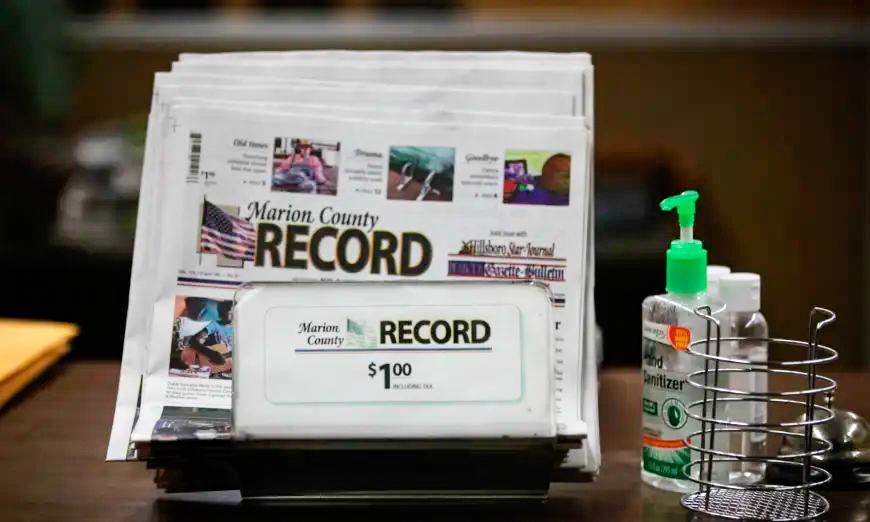The items seized from a local newspaper office and its publisher’s home in the small Kansas town of Marion during a controversial raid earlier this month have been returned, but an investigation into the matter will continue, according to officials.
In an Aug. 16 statement, the Kansas Bureau of Investigation said it had determined, in collaboration with the Marion County Attorney, that its investigation into the newspaper, the Marion County Record, “will proceed independently, and without review or examination of any of the evidence” seized during a raid on Aug. 11.




